pin oak (Quercus palustris)
Fagaceae, the beech family
How to recognize pin oak. It’s a member of the red oak group, with bristle-tipped lobes. Pin oak has especially narrow and deep lobes.
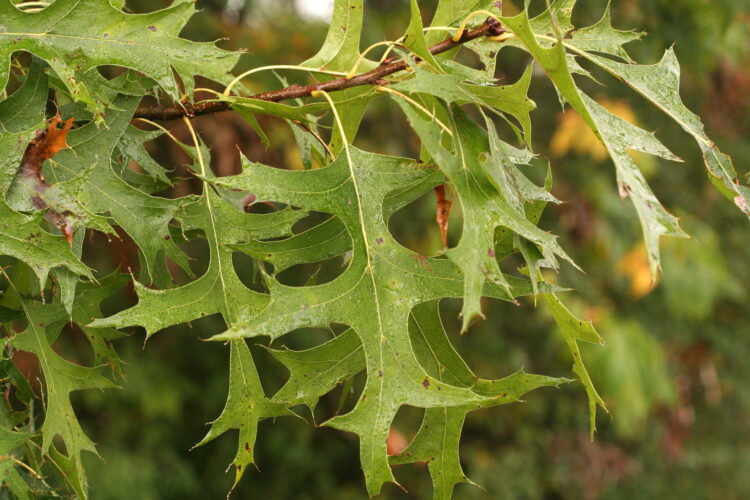
pin oak
Flowers and fruits. Oaks are monoecious, having separate male and female flowers, both types on the same tree. Here’s a flowering branch. The male flowers are in drooping catkins. The females are single or in pairs in the upper leaf axils.
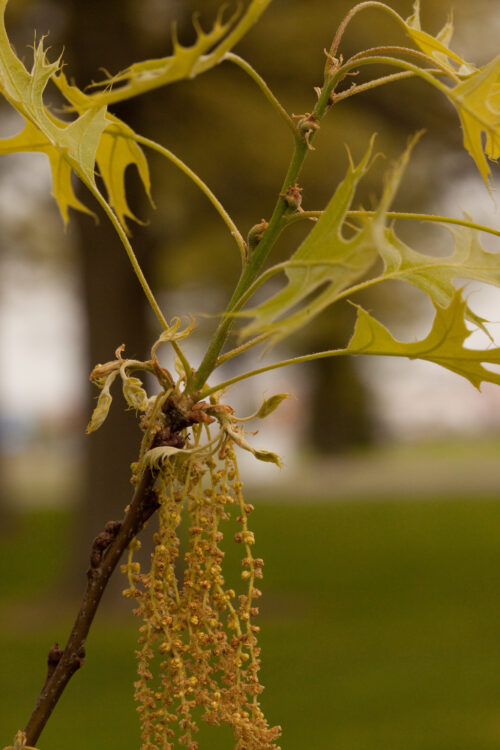
A pin oak in flower.
April 23, 2010, Marion County Ohio.
The female flowers the first year.
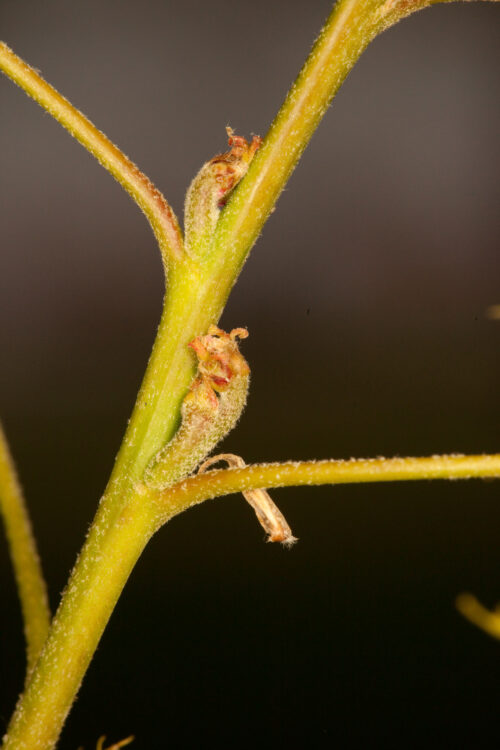
pin oak pistillate flowers
One-year old fruits (they will take another year to mature).
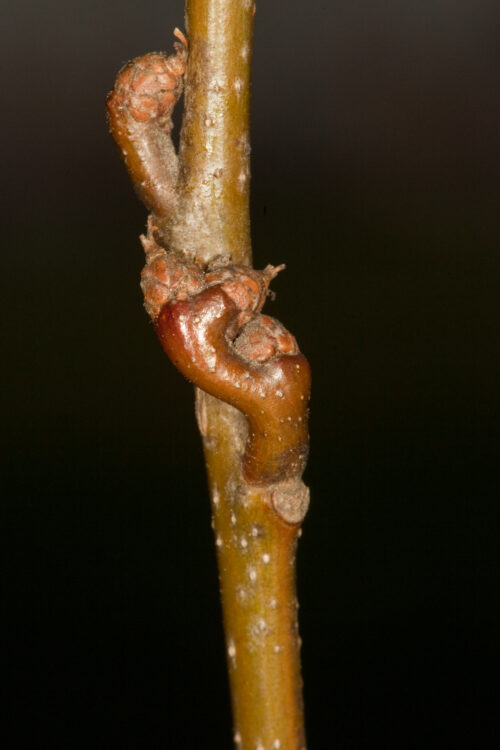
pin oak one year old fruits
Pin oak acorns are smaller than other oaks, and abundantly produced.
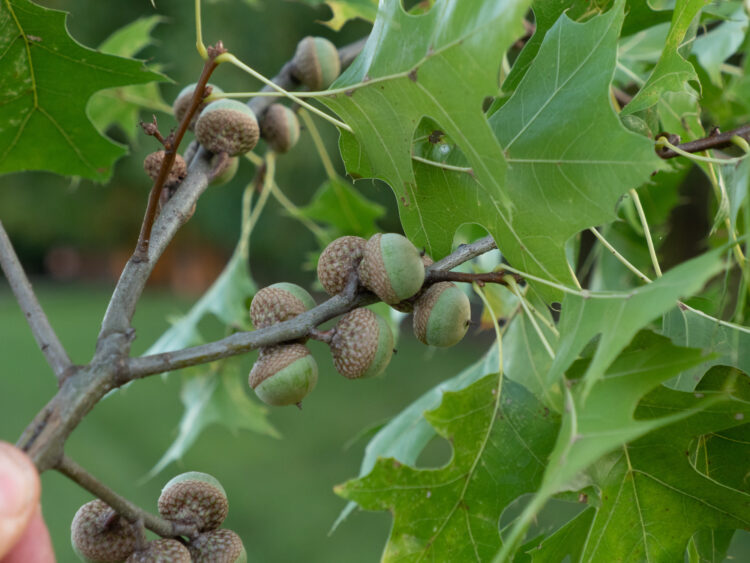
Pin oak in fruit.
August 26, 2022, Delaware County Ohio
In the winter. The pointed buds are typical for a member of the red oak group.
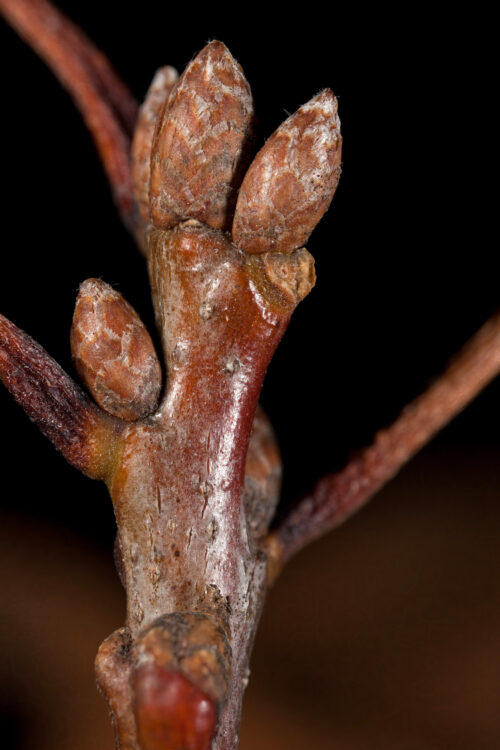
Pin oak twigs have sharp pointed false terminal buds.
Pin oak has an especially distinctive silhouette.
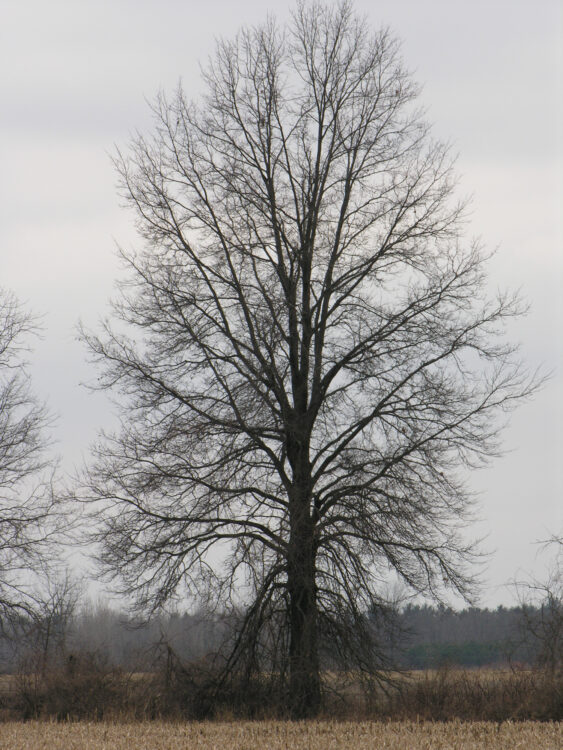
Pin oak has downward-pointing lower branches.
Where to find . E. Lucy Braun, in The Woody Plants of Ohio (1961, 1989; The Ohio State University Press) tell us that that pin oak is “Widely distributed in Ohio in wet bottomlands, borders of swamps, and most abundant on the “flats” or Illinoian Till Plain of southwestern Ohio where it occurs in pure stands of second or third-growth forest. Easily recognized from a distance by the branch habit–lower branched inclined downward, middle branches horizontal, upper ascending. The nearly spherical acorns are smaller than those of other oaks. The common name refers to the many short spur-like twigs on slender branches.”
Scanned Image from an Old Book
(Flora of West Virginia, by P.D. Strausbaugh and Earl L. Core)
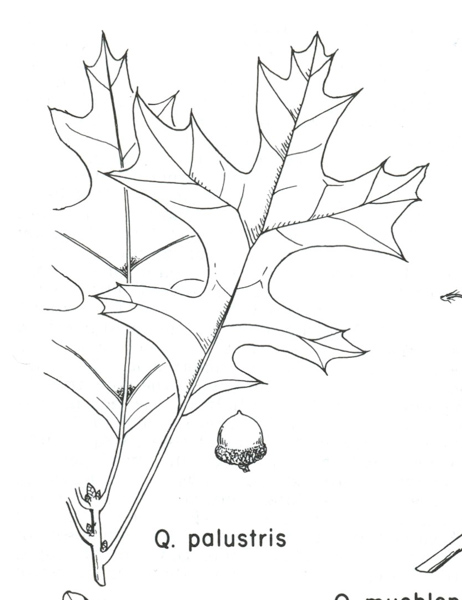
pin oak
Ooh ooh. I have a question!
What does the specific epithet palustris mean?
Palustris means “swampy” or “marshy,” used in reference to its habitat.
